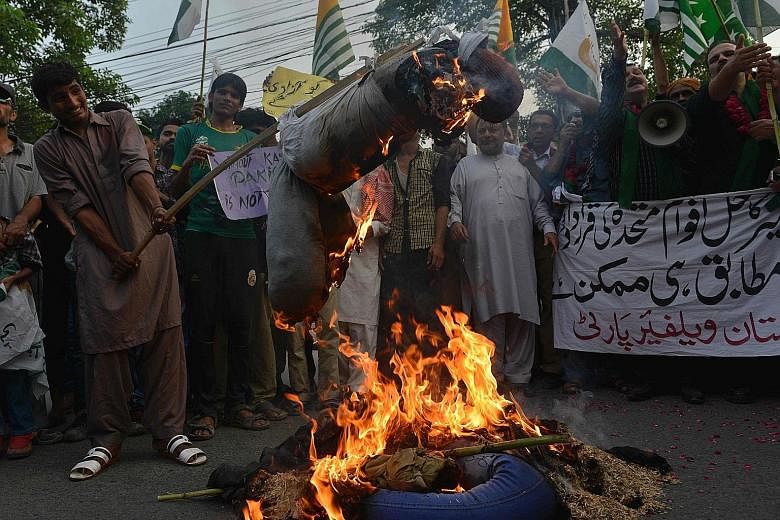India has threatened a review of the 56-year-old Indus Water Treaty with Pakistan, an agreement to share the waters of six cross-border rivers, following the terror attack on an Indian Army camp in Kashmir recently.
Prime Minister Narendra Modi yesterday held meetings on the treaty with top officials - including National Security Adviser Ajit Doval and Foreign Secretary S. Jaishankar - amid continuing clamour for tough action against Pakistan.
External Affairs Ministry spokesman Vikas Swarup last Thursday said there had to "be mutual trust and mutual cooperation between both sides" for the treaty to work. "It can't be a one-sided affair," he said.
India has blamed Pakistan for the attack by four militants on the Uri Army base in Kashmir on Sept 18, in which 19 soldiers were killed.
Islamabad has denied any role in the attack, one of the deadliest in nearly two decades.
Water sharing remains a sensitive issue in South Asia where river systems often criss-cross across borders.

The Indus Water Treaty has been seen as a success because it survived three wars between the two countries over Kashmir. India and Pakistan have been locked in a dispute over Kashmir since they secured independence from Britain in 1947.
Under the 1960 water treaty, Pakistan was given control over three western rivers - Indus, Chenab and Jhelum - that flow into Pakistan from India. And India was given rights over the three eastern rivers of the Beas, Ravi and Sutlej.
Large parts of Pakistan depend on the three rivers for irrigation and hydropower. India, for its part, can use up to 20 per cent of the water from the rivers under Pakistan's control.
Experts said New Delhi's review of the treaty was aimed at putting pressure on Pakistan to act against terror groups.
"All this is designed to give Pakistan a sense of discomfort and to feel that they are under pressure. I don't think it is real," said former Indian foreign secretary Lalit Mansingh.
"If that treaty is abrogated, it is not going to be good for India. It will paint us in a negative light in the international community. Nobody has sympathy for an upper riparian denying water to a lower riparian."
United Nations Deputy Secretary-General Jan Eliasson last week noted that the Indus Water Treaty had survived wars between the two countries. Without naming any nations, he was quoted as saying that "it would be a mistake for us to get caught up in water-war rhetoric".

